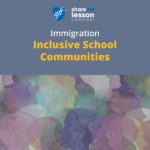In this lesson, students are presented with a controversial school policy and given two viewpoints on the issue. They are then divided into groups, and asked to provide reasons for and against the policy. After deciding whether the policy should be changed or not, the students are asked to reflect on why policies might change and what factors influence policy decisions.
The Powers of Congress
In this lesson, students will learn about the powers of Congress, how they have evolved throughout history, and their impact on public policy. Students will view C-SPAN video clips to learn about the types of congressional power and apply that knowledge by developing strategies to improve the effectiveness of Congress.
Local Politics: The Need for Compromise
This lesson examines the process of local decision making and its need for citizen input and compromise. Students simulate a local city/county council session and advise the council on public policy. Students are asked to consider the viewpoints of different citizen groups in order to reach a compromise that will benefit the entire community. This lesson can be used with a unit on local politics and can be adapted to reflect issues of compromise in your school or community. Free registration required to access the lesson plan.
The Constitution in Action: Who Shapes Foreign Policy?
History is the chronicle of choices made by actors/agents/protagonists in specific contexts. This simulation places students in the Early Republic and asks them to engage with a fundamental question of Constitutional interpretation faced at that time: Who controls foreign policy, Congress or the President? Students will explore this sweeping question with respect to Washington’s Neutrality Proclamation of 1793 and Jay’s Treaty.
Congress Investigates – Virtual Exhibit
The power to investigate, implied by the U.S. Constitution, is one of Congress’s most important tools for developing effective public policy, conducting oversight, and informing the public. Congress has investigated issues throughout its history via formal investigations and fact-finding inquiries with wide-ranging results, often significantly affecting the history of the United States.
Civic Conversations
How do educators invest in productive, deep, and transformative dialogue in their classrooms? Civic Conversations is a collaboration between the Edward M. Kennedy Institute’s civic education programming and the community-building dialogic structure practiced by Essential Partners. Explore resources, activities, and lesson structures that support educators as they facilitate difficult conversations, create inclusive learning environments, raise complex discussions, and promote a safe space for students to consider their values and engage in their communities. Policy simulations at the Kennedy Institute reflect the wide range of issues that face our country today. Students debate the best way to reform our immigration system, consider the balance between privacy and security, and think about how to meet the challenge of climate change. As in the real Senate, it’s natural that students will disagree on the best approach to many civic issues. This collection of resources will support educators as they prepare to discuss civic issues, either in preparation for a Kennedy Institute field trip or to practice listening, sharing, and learning in the classroom.
Cold War Document Based Question
Utilizing primary source documents from the archives of Presidents Truman, Eisenhower, Kennedy, Nixon, and Reagan, this piece of curriculum is modeled after the Advanced Placement Document Based Questions. This question invites students to explore U.S. Cold War foreign policy through the lens the office of the presidency, and to develop crucial critical thinking and writing skills.
Earth Day Activities
You will find a suite of activities for families, teens and educators to celebrate Earth Day. Take on a Green Challenge to design a creative solution for an environmental issue, explore examples of climate activism, and learn how legislators consider a climate-ready policy issue.
Immigration Lesson Plans and Resources

Share My Lesson has curated these immigration lesson plans & resources to raise awareness about the crisis on the border, and the need to foster awareness, cooperation and mutual understanding. In this collection, you will find dozens of rich, engaging resources to teach about immigration policy, history, and awareness with preK-12 students.
The Vietnam War Lesson Guide
Explore classroom lesson plans related to Ken Burns’s and Lynn Novick’s 10-part, 18-hour documentary series, The Vietnam War, which tells the story of one of the most consequential, divisive and controversial events in American history. The series explores the human dimensions of the war through the testimony of nearly 80 witnesses from all sides.